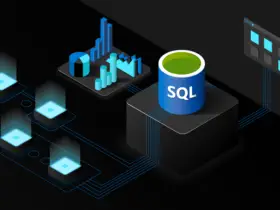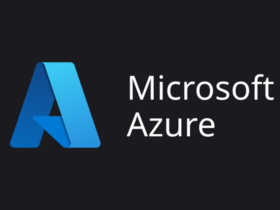

Top 12 DevOps Skills That A DevOps Engineer Should Master
Are you an engineer looking out to excel in DevOps skills? Is your team looking to adopt DevOps? You have come to the right place. In this article, we will discuss key DevOps engineering skills that make you an expert in this space. DevOps is all about breaking down the traditional silos and creating a culture of collaboration between business, operations and development teams. Along with the culture aspect, DevOps also emphasizes the key aspect of automating any repetitive and error-prone tasks using a spectrum of modern engineering tools. This article will help you gain insights on 12 specific skill set one needs to master in this space.
One thing to keep in mind when you talk about a “DevOps engineer“ is that it is not a role but a skill set that needs to be mastered by every software developer and not just operation folks.
DevOps Skills
“DevOps, everyone is doing it, few have mastered it ” – Mirco Hering, Author of “DevOps for the Modern Enterprise”. He explicitly quotes that nowadays all are adopting and working in DevOps way without understanding much about the key concepts and skills needed. Only a few are doing it right. What started as a great idea would end up in becoming a mere buzz word if we don’t understand the 12 Devops engineering skills.
The 12 DevOps engineering skills are:
1. Linux fundamentals and scripting
Linux is an open-source operating system created by Linus Torvalds in 1991. Since then there has been no looking back. Linux is now the most preferred operating system in the world. It’s more secure, compared to other operating systems like windows. Most of the companies have their environment setup in Linux based systems.
Many DevOps tools in the configuration management space like Chef, Ansible, Puppet, etc have their architecture based on Linux master nodes. These tools help in provisioning and managing infrastructure automatically with the help of any scripting language like Ruby, Python, etc.
Linux fundamentals and scripting know-how is a must to get you started with infrastructure automation which is a key concept in DevOps.
2. Knowledge of various DevOps tools and technologies
DevOps is implemented with the help of tools but in most of the cases, DevOps is often misunderstood as tools. We have to always remember the great quote from Scott Hanselman “The most powerful tool we have as developers are automation.”
The main aim of DevOps is to add value to the customer at an increased pace. Tools are chosen to incorporate this purpose and never to be used for the sake of using it. Technical knowledge of the tools is an added advantage for you to embrace DevOps.
DevOps tools are categorized broadly into 10 categories:
- Collaboration tools
- Application Life management and Issue Tracking tools
- Cloud/Iaas/Paas/Serverless tools
- Source control management tools
- Package Managers
- Continuous Integration and continuous delivery tools
- Continuous Testing tools
- Release orchestration tools
- Monitoring tools
- Analytics tools.
In each of these categories, we have more than 10 tools. A right tool must be chosen in each of these categories based on client requirements and the project environment. The main point to remember is that a tool should add value to the customer either by reducing delivery time or increasing the quality of the deliverables.
3. Continuous Integration And Continuous Delivery

A better understanding of the continuous integration and continuous delivery approaches helps to deliver a high-quality product at a faster pace to the clients.Continuous integration is one of the best practices in DevOps Community where whenever a developer finishes a functionality or a user story(in terms of scrum) he/she integrates the new code with the existing code base continuously. This helps to save a lot of time spent during the integration phase of the project. Continuous integration helps to detect integration issues in the early stages itself thus making the life of the developer easier.
Continuous delivery comes as an extension to continuous integration where the newly integrated code is made ready for deployment automatically without or minimum human intervention. Often in the case of the waterfall model, the development team has to release the new code to the testing team and then the testing team takes it forward. This usually takes a couple of days. These delays could be avoided by automating the transfer and testing process, making the code ready for deployment quickly.
Continuous deployment is the next step in automating the delivery pipeline of an application. This is where the new code is automatically deployed in the production environment. Some of the software companies do not consider continuous deployment as a best practice as they foresee it as a place where a lot of defects can creep into.
4. Infrastructure as Code (IAC)

Infrastructure as Code is the latest best practice in the DevOps community. This helps to provision and manage infrastructure by abstracting to a high-level programming language. Thus all the features of the source code could be applied to the infrastructure of the application like version control, tracking, storing in repositories, etc. With the emergence of IAC, days of manually configured infrastructure and infrastructure shell scripts are gone. A person who knows to develop infrastructure as code creates less error-prone, consistent and reliable infrastructure.
5. DevOps Key Concepts
DevOps is a culture where business, development, and operations teams collaborate breaking the traditional silos. The key value is to create a cross-functional team that knows what each team member does and where any team member can take up the work of the other, thus providing a better collaboration within team members and delivering a high-quality product to the customer. Since we don’t have silos anymore, unwanted time spent on transfer of the code between various teams like the testing team, the operation team is reduced, increasing the pace of delivery.
Another key concept is automating everything. This is done to generate a high-quality product for the customers by reducing human defects.
6. Soft Skills
DevOps emphasizes culture and people more than tools and practices. Hence people skills are a must-have when we are trying to adopt DevOps. The next important key value is trust among the team members. Trust is enabled by active and effective communication between team members creating positive vibes among team members. This, in turn, gets reflected on the quality of the deliverables and finishing off the work on time.
7. Customer-first mindset

DevOps emphasizes on a customer-first mindset. All people who adopt DevOps should take decisions keeping this in mind. No activity should be performed that does not add value to the customer.
8. Security skills
DevOps is all about speed, automation, and quality. As we increase the speed often we encounter vulnerabilities that get introduced into the code at a faster pace. DevOps practitioners should be able to write the code that is protected from various attacks. This has often led to DevSecOps thinking where security features are incorporated from the beginning rather than stitching it at the end.
9. Flexibility
According to Heraclitus: “The Only Thing That Is Constant Is Change ”. A team that embraces DevOps must be equipped to adopt change. All team members should be able to accept a requirement change or a role change. He/she must be comfortable to work in integration, testing, release, deployment, etc and also should have the technical knowhow. He/she must be aware of modern engineering tools and should be equipped to work on different tools based on requirements. Anant Agarwal, CEO of edX summarises the flexibility as follows:
“It’s hard to learn something that seems to evolve as quickly as the lessons are taught. Self-learners are the perfect candidates for embracing and pursuing DevOps adoption, as it requires a roll-up-your-sleeves, trial-and-error, do-it-yourself, continuous learning approach.”
10. Collaboration
Collaboration is one of the important key values in DevOps. A team that adopts DevOps is a cross-functional team where members from business, operations and development teams co-exist. Active collaboration is a key skill required by the team members. There should be transparency between the team members. Everyone should know what is happening in the team and who is responsible for a particular task.
11. Decision-making
Decisiveness or decision-making is one of the key elements employers look for in their employees. The ever-changing nature of the code in the DevOps team should be handled by a person who is quick in taking decisions. Thus enabling quick delivery and deployment of new code. Faster deployments give faster returns to the customer and provide immediate feedback from the end-users. This often leads to customer satisfaction.
12. Agile engineering
DevOps was introduced in 2008 by Patrick Debois and Andrew Clay Shafer after a discussion about agile infrastructure. Therefore DevOps is heavily rooted in agile principles and values. There are 4 agile values and 12 principles according to the Agile Manifesto. Every DevOps practitioner needs to have an in-depth understanding of agile philosophies.
Practical knowledge of agile practices like Test-driven development, behavior-driven development, etc helps to make a great DevOps practitioner.
Finally
DevOps is all about breaking down silos and where development teams, operation teams, and business teams collaborate to deliver a high-quality product quickly. All team members where DevOps is adopted should have all the 12 DevOps engineering skills. He/she focuses on customer satisfaction rather than local optimizations. To summarise, he/she should be a great team player, technically strong with good knowledge of DevOps tools and who can adapt to changes.
This subtle but important combination of all the attributes is important for a professional to be a DevOps engineer. Because, at the end of the day, customer satisfaction is the key to running a successful business enterprise.


























Leave a Reply